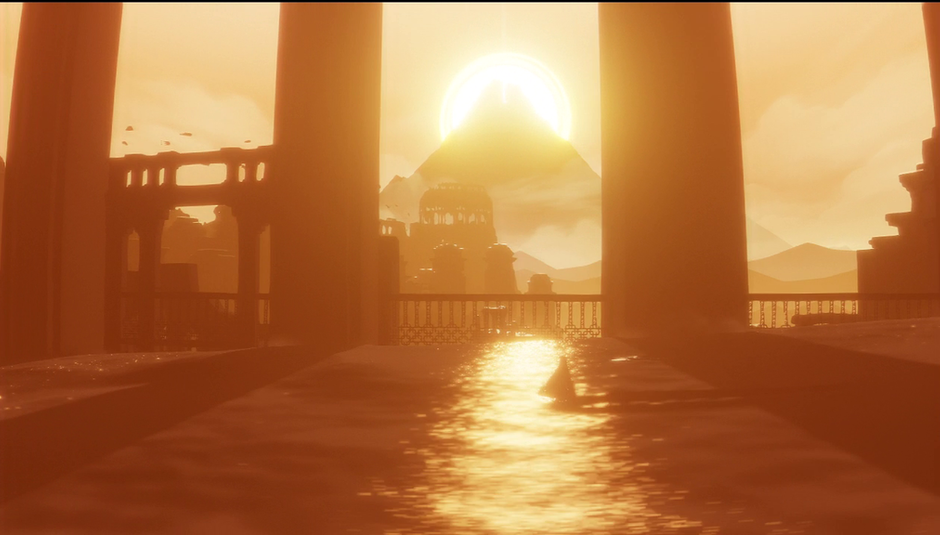With new hardware on the horizon in the shapes of the PS4 and Xbox One, Savage Pixels looks back at some of the very best games - or the most affecting ones - of this outgoing console generation.
At this stage of videogaming’s evolution, developers have reached the point where substandard products are conspicuous by their absence. There are games that slip into genre conventions, following wholly telegraphed paths to their conclusions. Duck behind that cover, pop up and headshot that foreigner, et cetera. But most of the time, they’re polished products. Which is why it’s so incredible when something like Ride To Hell: Retribution emerges, a title that clearly skipped testing to ship as an incredibly broken, impedingly buggy, indubitable nadir of its era. (You don’t have to imagine the Zero Punctuation take on things: it’s on YouTube.)
With this seventh generation of games consoles – the Xbox 360, PlayStation 3 and Wii – about to be replaced across the board by more-powerful successors – the Xbox One, PS4 and already available Wii U, respectively – the intention for this column was to spotlight the very best games to have been released for these outgoing (eventually) platforms, broken into distinct categories: Game Changers, Epic Yarns, Console Exclusives, Stylish Revivals… I had a few (seven, indeed). But that’d have been a mammoth read. Nobody has that sort of time. This is the internet, after all.
And besides, the seventh generation of games consoles is not about to be put to bed overnight. Support is going to continue into 2014. There are several multi-platform, cross-generation games coming: Destiny, Watch Dogs, Assassin’s Creed IV: Black Flag, Grand Theft Auto V. And the PS3 has at least two potentially outstanding exclusives up its sleeve, namely Quantic Dream’s Beyond: Two Souls and SCE’s own Puppeteer. To think that Edge asked, in March 2008, if the 360 had already peaked. Looks like it’s got some way to go yet.
So, instead: what games have mattered? What games have stayed with the player – and I can only speak for myself here – long after the credits have run their course? That’s my idea of gaming heaven: something that’s fine-tuned to a level where thumbs and clawed fingers find the right commands at the right times in a perfectly innate fashion; something that connects beyond the fundamental combination of interaction and counteraction and becomes an extension of my own processes and purposes. Something that really connects.
I can name only a handful, from hundreds played. Honestly, they are all fairly obvious, at least to those familiar with the gaming press and what titles have earned accolades for delivering the above-expressed desirables. The first BioShock, for me, was the first example of the seventh generation of games really combining power with beauty, an absorbing narrative guided by a nefarious antagonist with perfectly balanced combat mechanics. That came out in the August of 2007, after over 18 months of the 360 being on shelves – a PS3 port followed in 2008.
BioShock - trailer
Great games preceded BioShock, for the 360: Gears Of War, The Elder Scrolls IV, and the hugely underrated (for my money) The Darkness, another FPS sewn seamlessly to a strong plot. But they didn’t have the emotion, the heart, of 2K Boston’s first-person adventure through the fascinating underwater environments of Rapture, a city constructed on the ocean floor as a means of refuge and a source of inspiration for mankind’s finest minds. Inevitably, things took a turn for the dystopian, and by the time the player arrives on the scene, in 1960, riots have turned the settlement into a wreck – a tomb for some, a playground for others. It asks, too, that the player assesses his or her own moral compass: to let live, or live stronger. Powerful stuff.
But this, you know. And if not: get to know it. It’s incredible to me, still, that some current-gen consoles exist solely to play FIFA titles and run Netflix. That’s fine – those are great pastimes, too. But it’s the seventh generation of console hardware that, so far as I can feel it, really crystallised that previously erratic balance between story and set piece, passages of incredible adrenaline woven around periods of stillness, of calm reflection. It’s the generation that truly established games as a storytelling medium every bit as relevant to contemporary culture as tales told on stages, pages, and spread across the silver screen.
Some of the greatest stories I’ve followed over the past five years have been those comprising the backbone of videogames, the sometimes underappreciated but more-commonly meticulously engineered scripting that complements the progress-enabling slaughter and brain-tickling puzzle-solving. The list is slight, as established earlier, but the inclusions are games that I think, regularly, of returning to.
This year alone there’s been a pair of truly exceptional titles which had me set statuesque in silence at their closing moments. And both have stimulated several (hundred) column inches of end-sequence analysis, returning to plot points that, on an initial run, mightn’t seem to be of particular relevance: too incongruous, or too much McGuffin potential (familiarity breeds distrust). Or, perhaps: real pertinence.
The Last Of Us - story trailer
These are, of course, BioShock Infinite and The Last Of Us. With so much written on the titles already, I won’t detail them closely. But I think what they both achieved, beyond any preceding efforts, is a memorable dynamic between strong companion AI and equally detailed lead protagonists.
Unlike something like the largely infallible Half-Life 2, in which the resourceful Gordon Freeman is basically a blank-slate avatar through who we see City 17 and its surroundings, a pair of specs with crowbar-waving extremities, these anti-heroes – for both are damaged characters – speak, interact, and drive the narrative through predetermined actions as much as player interaction. Great acting ensures that cut-scene sections – even though BioShock Infinite doesn’t break perspective, it does wrest control from the player on occasions – flow smoothly with gameplay, resulting in the sort of cohesive whole that, just a few years ago, didn’t seem to be happening, despite the same tech availability.
But story is just one component of the heavenly experience. Control – both in terms of inputs and the way a character model moves around the game environment – and pacing is crucial, too. BioShock Infinite and The Last Of Us nailed these qualities – which was especially pleasing in the latter’s case after the breathless, and therefore rather muddled, adventure of Uncharted 3. Playing The Last Of Us, you can see how developer Naughty Dog looked back at their second Uncharted title, drawing from it the moments of calm – the Tibetan village, platform-only passages like the Turkish sewers – to contrast the spikes of violence. Which makes the combat all the more exciting, and necessary, when it happens.
Control is what prevents the narratively brilliant Telltale adaptation of The Walking Dead from really connecting at a level where not playing it feels like time wasted – again, for me, at least. Playing with a pad, it can feel the absolute opposite of intuitive; hand control to someone less-familiar with the 360’s layout and it’s game over in a heartbeat, which for what is essentially an evolved point-and-click title, rather sours proceedings. It’s a long way from left trigger to aim, right to shoot – the established layout which means that something like the classic revenge Western Red Dead Redemption feels entirely immediate to anyone with previous on a GTA game. And that quick-to-click interface means that the story delivers with a lot more potency. GTA on horses… well, perhaps. But the story of RDR is definitely Rockstar’s most memorable yet.
Rayman Origins - Gamescom 2011 trailer
Simplified controls can breed the most wonderful times. The revived Rayman series has harnessed this ideal by delivering a beautiful game in Origins that only requires the use of a few buttons to crack its testing levels, to unpick its secrets and accumulate its collectibles. It’s probably the best non-Mario platformer of this generation – and one that’s rightly received a sequel, with Legends out around the time of this article’s publication.
Originally conceived as a Wii U exclusive making interesting use of the console’s embedded-screen GamePad to control scene-munching and rope-snapping assistant fairy Murfy, Legends has been translated well to PS3 and 360, with the B/Circle button prompting his progress-aiding/life-saving interventions. Bright, addictive, instant-of-appeal and a joy to spend hours with, these two games are surely cornerstones of their genre.
The story doesn’t matter, then, when the mechanics sing. Which is why thatgamecompany’s Flower for the PS3 is such a remarkable little piece of software. Almost entirely challenge-free, it’s a meditative delight, something to sooth a day’s aches away in front of. More amazing, though, is that the small Los Angeles developer went one better in 2012, matching simple controls that anyone can master in a minute with a story, of sorts, that was incredibly moving.
Journey is, maybe, the most heavenly game released since the old became the new which, as the cycle continues, is about to become the old once again. It takes 80 minutes, no more, to complete – on a first run, too. Come the second, third and more, the limited puzzles will solve themselves and those gliding stone serpents won’t get near you. If you’re willing to forgo the scarf-extending bonuses, you’ll crack it inside an hour. But its brevity takes nothing away from a perfectly balanced game that, at its end, stirs similar emotions, through its visuals and its amazing soundtrack, within the player as experienced in the much bigger likes of Red Dead Redemption or The Last Of Us. I daren’t spoil it, but the final section of Journey is amongst the most incredible I’ve ever played (should you want to spoil it, or simply relive it, click to YouTube). And every time I’m there, the same lump builds up in my throat – it’s getting smaller, but it’s still there.
Journey - launch trailer
Playdead’s Limbo achieves something similar – leaving the player awed at its ambiguous end – although it’s far more fiendish of design and will take a lot longer to ‘beat’ on a first run that something like Journey. Recently ported to iOS, it’s a game that, really, should be attempted by anyone with any appreciation of gaming aesthetics, as it’s drop-dead gorgeous in its monochromatic make-up, and of expertly managed difficulty curves. You’ll get stuck, but you’ll get through. Hang in there. Even when the gravity flips 180, hang in there.
So those are some of my own heavenly games of console history’s generation seven. I’ve also loved (as in: will never trade for something shinier): Street Fighter IV, LittleBigPlanet, Mass Effect 2, Skyrim, Portal 2, Bayonetta, Child Of Eden, Rocksteady’s superb Arkham games, Mirror’s Edge (as frustrating as it could be, you can’t knock the ambition on display), Vanquish, Dishonored, Blur, Uncharted 2 (which I only just finished, better late than never), Grand Theft Auto IV of course… I just peeked into my games cupboard and I can confirm that this list could run and run. And also, I just realised I haven’t mentioned Skyward Sword, and that’s something that not only delivered as a game, but fitted its hardware more sweetly than other Wii-exclusive releases.
But as wonderful as so many games have been, not so many have gone so deep beneath the skin that I haven’t stopped scratching the itch since. I’d happily sit down now and play through Journey again. I’d just as happily reengage with the original BioShock, even six years on from its release. The Last Of Us? I’ll spend some time with colourful, carefree games a bit before going back there. Bleakness is something you can easily overload on.
DiScuss: We’ve a little way to go yet before the seventh generation of consoles is over, but what have your own favourite games of this era been? With almost 1,000 titles released for the 360, 1,200 for the Wii and almost 800 on the (last to the party) PS3, there’s been more choice than, I think, ever before. Surely there are undiscovered gems out there… want to share them?






















